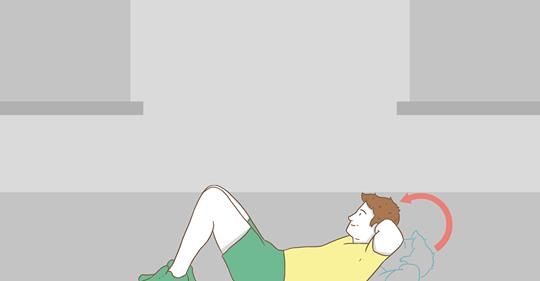How to Build Muscle?
The best way to build muscle is to work out for 30-60 minutes 3-5 times a week and vary your routine every month so you don't plateau. To build your back muscles, do bent-over rows and pull-ups. To grow your pecs, do push-ups and lift weights on a bench press. Work your shoulders with overhead presses. Target your leg muscles with deadlifts and squats, and build your biceps and triceps with arm curls and dips. Finally, do planks and crunches to build your abdominal muscles. To learn what foods you should eat to build muscle, scroll down!
Increase your caloric consumption. Keep a log of the number of calories you eat, and use the average of those numbers to estimate your daily caloric needs. Then, multiply that number by 1.1. Make sure your calories are coming from a variety of healthy, minimally processed foods to provide quality nutrients for muscle-building. Try to get 30% of your calories from proteins, 50% from carbohydrates, and 20% from fats.
Get enough protein to support muscle growth. Aim for about 0.8 grams to 1 grams of protein per pound of bodyweight (1.6g to 2g per kg). For example, if you weigh 180 lb, take in 144-180 g of protein every day. If you're overweight, use your lean body mass as your bodyweight instead of you're current weight.
- One ounce (28 grams) of cooked meat contains roughly 7 grams of protein. You could meet a 120-gram daily goal with three 6-oz. steaks, assuming no other protein sources.
- If you're having difficulty meeting these protein levels, you can always use protein shakes to make up the difference.
Drink enough water. The body needs a sufficient amount of water to build muscle at an optimal rate. Here's a great little formula to help make sure you are getting enough:
- Imperial units: Bodyweight in lbs X 0.6 = water intake in ounces.
- The same formula in metric units: Bodyweight in kg x 40 = water intake in milliliters.
- This includes all water from food and drink, not just glasses of water.
- If you are over 30, you can lower these numbers to lbs x 0.46 to 0.54, or kg x 30 to 35
Eat regularly. Rather than having two or three large meals during the day—something we've grown up with—change your eating habits so that you are eating five to seven smaller meals during the day.
- To help keep your protein intake high, one or two of those meals can be a protein shake. Here's one example, though a quick internet search will uncover hundreds of delicious protein shakes:
- 8 ounces (230 g) skimmed milk
- 1 banana
- 1 tablespoon (15 ml) peanut butter
- 2 scoops of protein powder
- Eat healthy fats. That's right—not only does it make food taste good, fat is good for you, as long as you are eating the right kinds and amounts of fat! Saturated fats—the fat you'll find in a stick of butter, a bag of chips, or bacon—should be limited to about 20g or less. That's the bad news. The good news is that unsaturated fats are actually beneficial, even necessary. Fat is necessary for the proper distribution of vitamins A, D, E, and K, helps promote better eyesight, and healthy skin. Fats are also important for the synthesis of hormones, so maintaining an adequate intake of them will speed up muscle-building and recovery.
- Monounsaturated fats can be found in olive, canola, and sesame oils; avocado; and nuts such as almonds, cashews, peanuts, and pistachios.
- Polyunsaturated fats are found in corn, cottonseed, and safflower oils; sunflower seeds and oils; flaxseed and flaxseed oil; soybeans and soybean oil.
- Omega-3 fats, an overall winner of a fat that is very beneficial to heart and blood health, eyesight, and for children, brain development. You'll find this fat in many omega-3-enriched foods. Another great source is fatty cold-water fish such as salmon, tuna, trout, and sardines.
- A good way to determine how much fat in grams you should be taking in is to multiply your calorie intake by 0.001 for maximum trans-fats; by 0.008 for maximum saturated fats; and by 0.03 for the "good fats". For example, for a 2,500-calorie diet, you would limit trans-fats to 3g or less, saturated fats to 20g or less, and up to 75g of mono- and polyunsaturated fats.
Take your vitamins. In addition to a well-balanced diet, include a multivitamin supplement to your dietary regimen. It will ensure that your body is getting the full amount of vitamins and minerals it needs to stay healthy. There are many options, depending on your age, your sex, and your particular health and diet needs. Find the one that's right for you, and make it part of your daily routine.



+1.svg)
